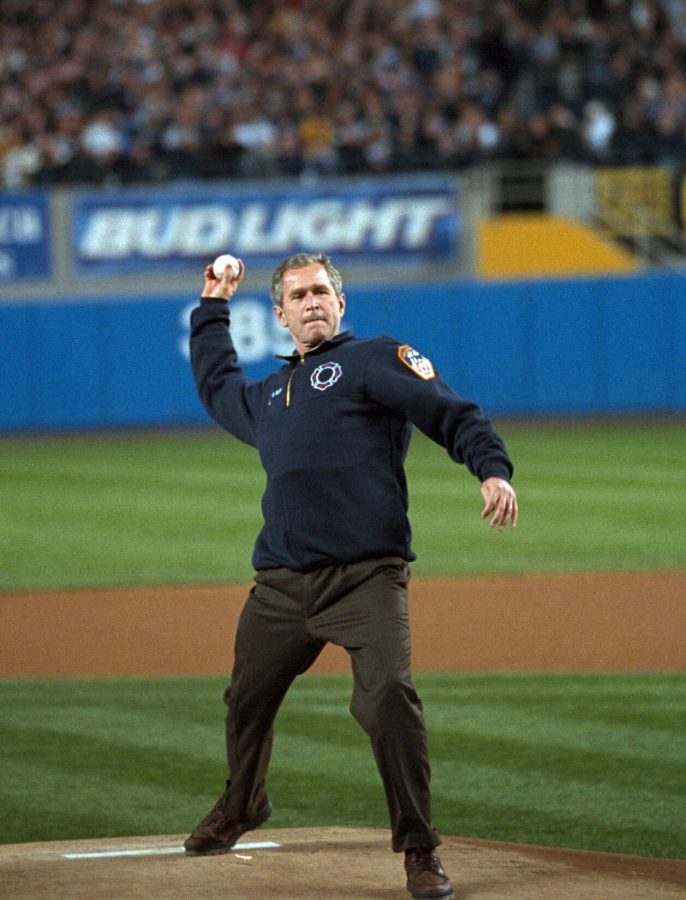For New York Giants defensive end Michael Strahan, Sept. 11, 2001 started just like any other. But then, he got a phone call from a friend who told him to wake up, look outside the window of his house in the sleepy New Jersey bedroom community of Hackensack, and to turn on the news. When he looked outside, Strahan couldn’t believe his eyes. Smoke was billowing from the World Trade Center in Lower Manhattan. A plane had struck the North Tower. Seventeen minutes later, another plane struck the South Tower. Strahan would go on to say that “[L]ife was never the same. It was overwhelming. It was just an unreal time. And it seems like even being here in New York, and when it was happening and we’re watching it in real time, it was scary, but yet it felt surreal. It felt like you were in an alternate universe. And of course you think in this country nothing like that could happen to us.” A view that was shared by, and shattered for, countless other Americans on that awful September day.
20 years after the events of Sept. 11 that claimed the lives of nearly 3,000 American citizens, there continues to be an enormous impact on the American psyche. Sports proved to be no exception. In the aftermath of the attacks, Strahan and New York Jets center Kevin Mawae both told then-NFL Commissioner Paul Tagliabue that they would not play the following week’s games. This led to the NFL canceling an entire week’s worth of games, something they had never done before—not even when President Kennedy or the Rev. Martin Luther King Jr. were assassinated in the 1960s. Major League Baseball also put its season on hold, canceling almost two weeks of games. When baseball returned to cheers and tears on Sept. 23, it was an emotional affair. The Yankees, playing a road series in Chicago, were given a standing ovation by what would have been a normally hostile crowd. The Mets were the first professional team in New York to play after the attacks, and what a memorable game it was. The home nine wore “FDNY” on their hats, in tribute to the brave firefighters who gave their lives trying to rescue civilians out of the burning towers. Trailing 2–1 in the eighth inning, Mets catcher Mike Piazza came to the plate with a runner on first. He then hit a two-run home run, giving his team the lead, and sending the capacity crowd into a frenzy—making it seem, for a brief moment, like everything was going to be alright.
The Yankees would end up making it to the World Series in 2001, giving New York a feel-good story to latch onto. In game three, the tattered American flag found in the wreckage of Ground Zero was unveiled on the field. A banner in the crowd aptly read “USA FEARS NO ONE – PLAY BALL”. President George W. Bush was at the game to throw out the ceremonial first pitch. Before the game, Yankees star shortstop Derek Jeter told Bush that he better throw from the rubber; otherwise, the notoriously tough New York fans would let him hear it. Throw from the rubber he did. Less than two months after the attacks, wearing a bulletproof vest, not even nine miles away from Ground Zero, Bush threw a pitch that consistently ranks as one of the greatest ever. He threw right down the middle, to a standing ovation from the crowd. For just a moment, it seemed as if, through so much heartache, grief, and agony that followed the attacks, America could band together and show unity in the face of an unspeakable tragedy.
In the aftermath of unspeakable horror on 9/11, sports provided healing to a battered nation
September 17, 2021
About the Contributor
Jack Sherman, Sports Writer





















































